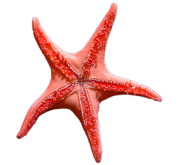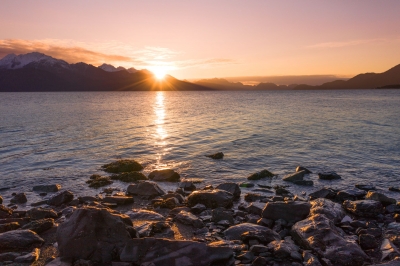Alaska SeaLife Center Announces Alaska Ocean Leadership Award Recipients January 24, 2020
Seward, Alaska (January 24, 2020) – The Alaska SeaLife Center (ASLC) is pleased to announce the recipients of the 2020 Alaska Ocean Leadership Awards. These awards are given annually to individuals and organizations that have made significant contributions to the awareness and sustainability of the state’s marine resources. The Alaska SeaLife Center appreciates the support provided by the award sponsors and thanks the awards committee members (Betsy Baker, Jason Brune, Lisa Busch, Dale Hoffman, Molly McCammon, Robert Suydam) for their assistance in selecting the award recipients. These awards will be presented at the in Anchorage Alaska Marine Gala on February 8 at the Dena’ina Center and/or at the Alaska Marine Science Symposium on January 27-31.
The following are the 2020 Alaska Ocean Leadership Award winners:
Molly McCammon will receivethe prestigious Walter J. and Ermalee Hickel Lifetime Achievement Award. The late Governor Walter J. Hickel and his wife Ermalee endowed this award for 10 years to recognize individuals who have made exceptional contributions to the management of Alaska’s coastal and ocean resources for more than 20 years. Molly has worked tirelessly to promote the long term sustainability of Alaska’s coastal and ocean resources, and find creative solutions to meet the needs of Alaskans. Molly came to Alaska in 1973, first as a reporter covering a variety of natural resource issues, then homesteading in the Brooks Range, and later working in various fields in state government. Her service to marine conservation began in 1984 as a legislative aide working on the wild fishery stock priority policy and the new community development quota program. At the Alaska Department of Fish & Game, Molly worked on salmon management issues and on legislation strengthening Alaska’s response and prevention efforts following the Exxon Valdez oil spill. From there, Molly served as Executive Director of the Exxon Valdez Oil Spill Trustee Council for nine years. As Executive Director, Molly managed the largest research and monitoring program in the state, with one of her many accomplishments being the installation of annual, multi-disciplinary conferences focused on marine research. These conferences were initially funded by EVOS, and over time, have evolved into the annual Alaska Marine Science Symposium that continues today. Her leadership and work for the Trustee Council directly contributed to many significant research programs that provided a comprehensive understanding of marine ecosystems of Prince William Sound, creating a baseline for evaluation of any future oil spills as well as the dramatic changes in the ocean we are seeing now. In 2003, Molly organized and launched the Alaska Ocean Observing System where she continues to serve as its Executive Director. Molly has direct involvement in the actual development and running of regional coastal and ocean observations systems. She has taken a leading national role in developing the Integrated Ocean Observing System on a regional level and established the national IOOS Association. Throughout her career, Molly has worked effectively for positive solutions that meet the needs of Alaskans, and, at the same time, foster the conservation and wise use of Alaska’s natural resources, especially its fisheries. Her contributions have made a lasting difference for marine conservation in Alaska.
Alaska Wildland Adventures will receivethe Stewardship and Sustainability Award. This award is sponsored by Jason Brune, and honors an industry leader that demonstrates the highest commitment to sustainability of ocean resources. Since 1977 and under the leadership of Kirk Hoessle, Alaska Wildland Adventures has operated natural history tours exclusively in Alaska, providing high quality, interactive experiences in wild Alaska. At the heart of this company’s culture is the strong respect for the environment and unique native heritage of Alaska. AWA recently celebrated its 10th year of operation of the Kenai Fjords Glacier Lodge, which was born from a collaborative partnership with Port Graham Native Corporation. The lodge was created to support community goals of the corporation’s Native residents while also creating an environmentally-conscious lodge to host small groups of Alaskan tourists each summer. It is a solid example of positive stewardship and sustainability in Alaska, from its low impact construction methods, to working with local government agencies to create and maintain the Pedersen Lagoon Wildlife Sanctuary that protects native flora and fauna, to supporting the local marine community of Seward. Alaska Wildland Adventures puts a strong emphasis on hiring, shopping, and transporting locally which contributes to the sustainability of the Seward community.
Dr. Switgard Duesterloh will receive the Marine Science Outreach Award. This award is given to a person, team or organization that has made an outstanding contribution to ocean literacy via formal or informal education, media or other communications. It is sponsored by the Alaska Ocean Observing System. Dr. Switgard Duesterloh created the Ocean Science Discovery Lab in Kodiak in 2009 and has run several programs for students grades 3-12. She offers science summer camps in Kodiak Island villages and in the city of Kodiak. Her programs include a diverse study of marine biology from food webs to sea otter ecology to sea star experiments, dissections, oil spill history and response, various oceanography experiments, and more. Dr. Duesterloh is inclusive and creative with her students. During the past year she has partnered with the Island Trails Network, a local nonprofit that does beach cleanups throughout Kodiak. She works tirelessly to raise awareness of the problems associated with plastic pollution. Currently, she is organizing a spring Whale Festival, a program inviting the community to partake and recognize Kodiak’s unique position in whale migrations. She also writes a column in the Kodiak Daily Mirror, educating the community about life in the ocean.
This year, the Awards Committee named two recipients for the Marine Research Award: Carin Ashjian and the Alaska Beluga Whale Committee. This award issponsored by Drs. Clarence Pautzke and Maureen McCrea. This honor is given to a scientist, team of scientists, or an institution that is acknowledged by peers to have made an original breakthrough contribution to any field of scientific knowledge about Alaska’s oceans.
Carin Ashjianhas contributed important insights to marine research and significantly advanced leadership in shaping marine science programs in the Arctic and Bering Sea for the past two decades. Her substantial expertise in oceanography, zooplankton ecology, and biological-physical interactions focusing on Arctic and sub-arctic regions has advanced our understanding of these systems, and how lower trophic levels respond to the physical environment and connect to higher trophic levels. One specific example of her boundary-straddling work is her decade-long work around Utqiaġvik where she and her colleagues Steve Okkonen and Bob Campbell focus on the oceanographic mechanisms that produce a favorable feeding environment for bowhead whales, a species of imminent subsistence and ecological value. Carin has worked to communicate the results of her research to Alaskan coastal communities and local hunters. Carin has been published in top-ranking journals and has made continued significant contributions to Arctic and sub-arctic marine science. That her work and expertise is well-known and important beyond regional scales is exemplified by her involvement in international programs, most recently the interdisciplinary MOSAiC program that explores Arctic processes throughout an entire year on a ship-based platform frozen into the sea ice.
The Alaska Beluga Whale Committee (ABWC) serves as the co-management partner with the National Oceanic and Atmospheric Association for four stocks of belugas in western and northern Alaska. Since its creation in 1988, the committee has encouraged and promoted the conservation and informed, sustainable management of beluga whales through collaboration of Alaska Native subsistence hunters, biologists, and agency managers. They have initiated and continue management of this important resource and conduct scientific research on belugas to address management needs. At the time the ABWC was formed, there was little precedent for hunters and scientists working together. Now the committee brings representatives from beluga hunting communities in Alaska; local, state, tribal and federal governments; and beluga researchers together to discuss management and conservation issues, the biology of belugas, and the needs for additional information. Because of this committee, there is now information on the annual harvest of belugas since 1988, population estimates, satellite tracking of belugas, and sampling for genetics from approximately 2,500 beluga whales. The information and transparency shared by the ABWC provide assurances to Alaska, the U.S., and the international community that belugas in western and northern Alaska are being well managed.
Fran Ulmeris this year’s recipient of the Ocean Ambassador Award. The Ocean Ambassador Award recognizes an individual or organization that has made outstanding contributions in promoting public awareness and appreciation of Alaska’s oceans, coasts, and marine ecosystems. Fran Ulmer’s legacy of public service spans over 40 years and is still going strong. Her achievements reflect an exceptional contribution to management of Alaska’s coastal and ocean resources, a commitment to community, and first-hand appreciations for Alaska’s unique people and resources. Fran has had a significant impact in terms of coastal and ocean public policy. As the first director of the Alaska Coastal Policy Council, she was instrumental in the early formation and development of Alaska’s coastal management program. As a mayor, legislator, and lieutenant governor, she advocated for responsible use of the marine environment by Alaska’s growing tourism and cruise industry, as well as commercial and recreational fisheries. She was a strong voice for the careful management of Pacific Ocean fisheries as a commissioner on the North Pacific Anadromous Fish Commission for over a decade. Her advocacy for enhancing relevant science and policy research as Chancellor of the University of Alaska Anchorage continues beyond Alaska, as a Visiting Professor at Stanford and now a Senior Fellow at Harvard. As chair of the U.S. Arctic Research Commission, she has ensured that the U.S. maintains a strong focus on marine research and has built collaborations with other nations across the Arctic to ensure that activities in the Arctic are conducted in an environmentally sustainable manner. Fran lectures internationally about the rapid changes happening in the Arctic, why people everywhere should care, and why conservation of our oceans is essential to everyone’s wellbeing.
About the ASLC
Opened in 1998, the Alaska SeaLife Center operates as a private, non-profit research institution and public aquarium, with wildlife response and education programs. It generates and shares scientific knowledge to promote understanding and stewardship of Alaska’s marine ecosystems. The ASLC is an accredited member of the Association of Zoos and Aquariums. To learn more, visit www.alaskasealife.org.


